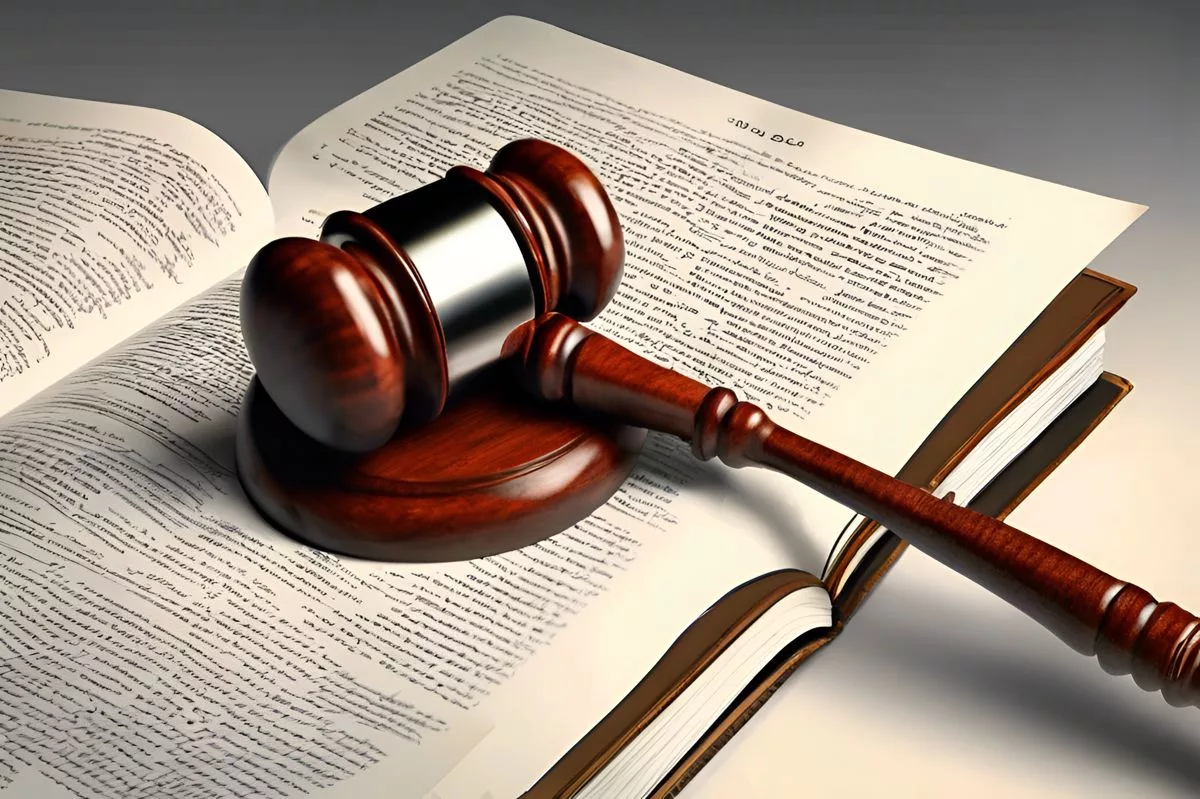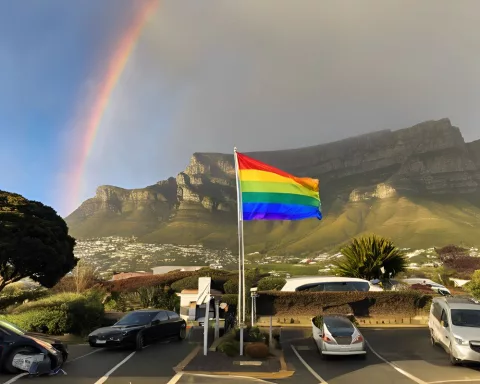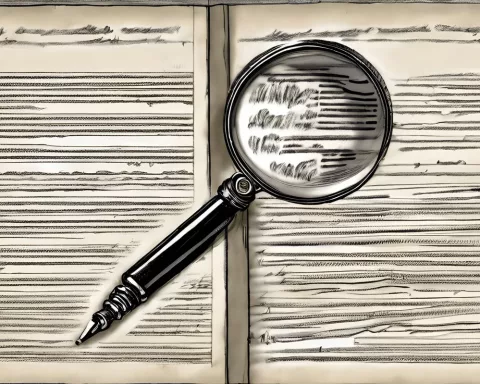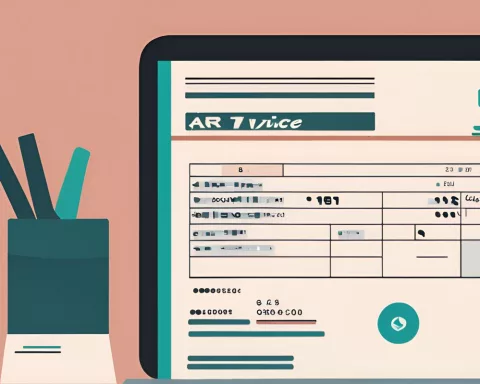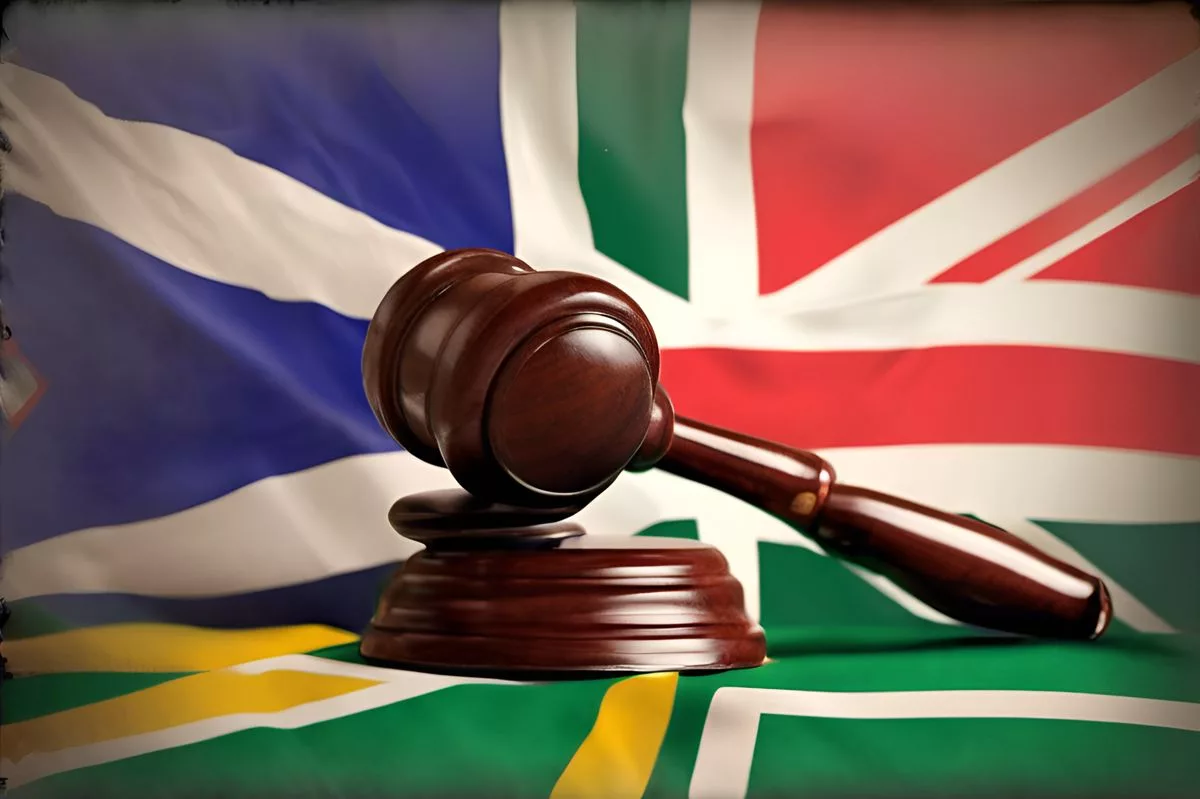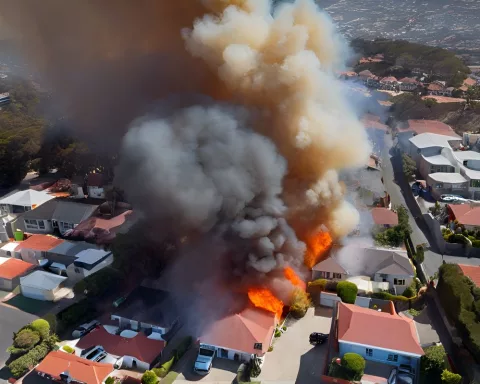The High Court in South Africa rejected the Economic Freedom Fighters’ (EFF) request to put disciplinary measures against six of their members on hold, affirming the importance of decorum and the rule of law in parliamentary procedures. The court’s decision highlights the significance of maintaining order in political institutions and the consequences of disregarding parliamentary regulations and customs. The verdict also serves as a testament to the sturdiness of the country’s judicial system and its dedication to upholding democratic principles.
What was the High Court’s Verdict on EFF’s Request?
The Western Cape High Court rejected the Economic Freedom Fighters’ (EFF) plea to put a hold on disciplinary measures imposed on six of their members. The court’s dedication to preserving the rule of law, even amidst tricky political dynamics and pressures, stands as a testament to the Parliament’s approval and underscores the significance of discipline and etiquette in parliamentary procedures. The verdict doubles down on the judicial and parliamentary standards that uphold the sanctity of the State of the Nation Address.
High Court’s Verdict on EFF’s Request
The Western Cape High Court made a crucial judgment, rejecting the Economic Freedom Fighters’ (EFF) plea to put a hold on disciplinary measures imposed on six of their members. This significant outcome was met with the approval of the Parliament and stands as a testament to the court’s dedication to preserving the rule of law, even amidst tricky political dynamics and pressures.
Back in February 2023, six members of the EFF, namely Julius Malema, Floyd Shivambu, Marshall Dlamini, Sinawo Tambo, Vuyani Pambo, and Dr. Mbuyiseni Ndlozi created a stir during the State of the Nation Address. This unfavourable incidence led the Parliament’s Powers and Privileges Committee to propose their suspension citing grounds of contempt. The band of six disregarded the Speaker’s directive to exit the Chamber and were eventually laid off by the Parliament Security Services.
Upon facing the disciplinary action, EFF reached out to the court hoping for leniency concerning their late responses to the affidavit issued by the National Assembly and their Heads of Arguments. This procrastination not only infringed on the court’s schedule but also laid bare their lack of organization and readiness for their plea to be taken into consideration.
Consequences of Delay and Lack of Preparation
The Western Cape High Court, in its calculated response, chose to disregard the EFF’s plea. Their verdict was in concurrence with the idea that the responsibility of abiding by court rules and preparing a case for hearing rests squarely with the applicant. In this scenario, the EFF’s late filing – done literally at the eleventh hour before the next court day – was deemed unacceptable, consequently leading to the rejection of their plea.
Moloto Mothapo, the spokesperson for the Parliament, conveyed pleasure with the court’s decision, underlining that it was proof of the sturdiness of the country’s judicial system. He articulated that this ruling accentuates the necessity for political factions to respect parliamentary regulations and customs, and that any disregard for the same would not be shrugged off.
Upholding Parliamentary Norms and Inviting Public Participation
The verdict thus doubles down on the judicial and parliamentary standards that uphold the sanctity of the State of the Nation Address – a nationally significant event. The suspensions against the six EFF members persist, a fallout of their disorderly conduct in the parliament.
This occurrence and the subsequent ruling underscore the significance of discipline and etiquette in parliamentary procedures. It also highlights Parliament’s dedication to maintain order and ensure the uninterrupted operation of its proceedings.
The rejection of the EFF’s plea, therefore, stands as a symbolic instance of a court’s decision being used as a rectifying measure for political behaviour and a reinforcement of democratic principles and order. The court’s decision is not merely a judgment in a specific case but a potent message to all political institutions about the sacrosanctness of parliamentary norms and procedures, and the repercussions of flouting them.
The Parliament of the Republic of South Africa continues to encourage public participation in its proceedings. Anyone interested can organize a tour, attend a debate, or reach out to the parliament for further information.
The Balancing Act of Democracy
Ultimately, a functioning democracy depends on both the elected representatives who signify the public and the judiciary that safeguards the rule of law. This ruling from the Western Cape High Court is a validation of this delicate yet indispensable equilibrium.
What was the incident that led to the EFF’s plea to put disciplinary measures on hold?
Six members of the Economic Freedom Fighters (EFF), namely Julius Malema, Floyd Shivambu, Marshall Dlamini, Sinawo Tambo, Vuyani Pambo, and Dr. Mbuyiseni Ndlozi created a stir during the State of the Nation Address in February 2023. This led the Parliament’s Powers and Privileges Committee to propose their suspension citing grounds of contempt.
Why did the Western Cape High Court reject the EFF’s plea?
The Western Cape High Court rejected the EFF’s plea to put a hold on disciplinary measures imposed on six of their members because of their late filing, which not only infringed on the court’s schedule but also laid bare their lack of organization and readiness for their plea to be taken into consideration. The court upheld the idea that the responsibility of abiding by court rules and preparing a case for hearing rests squarely with the applicant.
What does this ruling signify for the Parliament and South Africa’s judicial system?
This ruling is a testament to the Parliament’s dedication to upholding parliamentary regulations and customs and the sturdiness of South Africa’s judicial system. It underscores the significance of discipline and etiquette in parliamentary procedures and highlights the consequences of flouting them.
What are the consequences of disregarding parliamentary regulations and customs?
Disregarding parliamentary regulations and customs can lead to disciplinary action and consequences, such as suspension, loss of credibility, and a tarnished image. This can also affect the sanctity of significant national events such as the State of the Nation Address.
How can the public participate in the Parliament’s proceedings?
The Parliament of the Republic of South Africa encourages public participation in its proceedings. Interested individuals can organize a tour, attend a debate, or reach out to the parliament for further information.
What does this ruling signify for democracy?
This ruling highlights the delicate yet indispensable balance of both elected representatives who signify the public and the judiciary that safeguards the rule of law. It serves as a potent message to all political institutions about the sacrosanctness of parliamentary norms and procedures, and the repercussions of flouting them.

